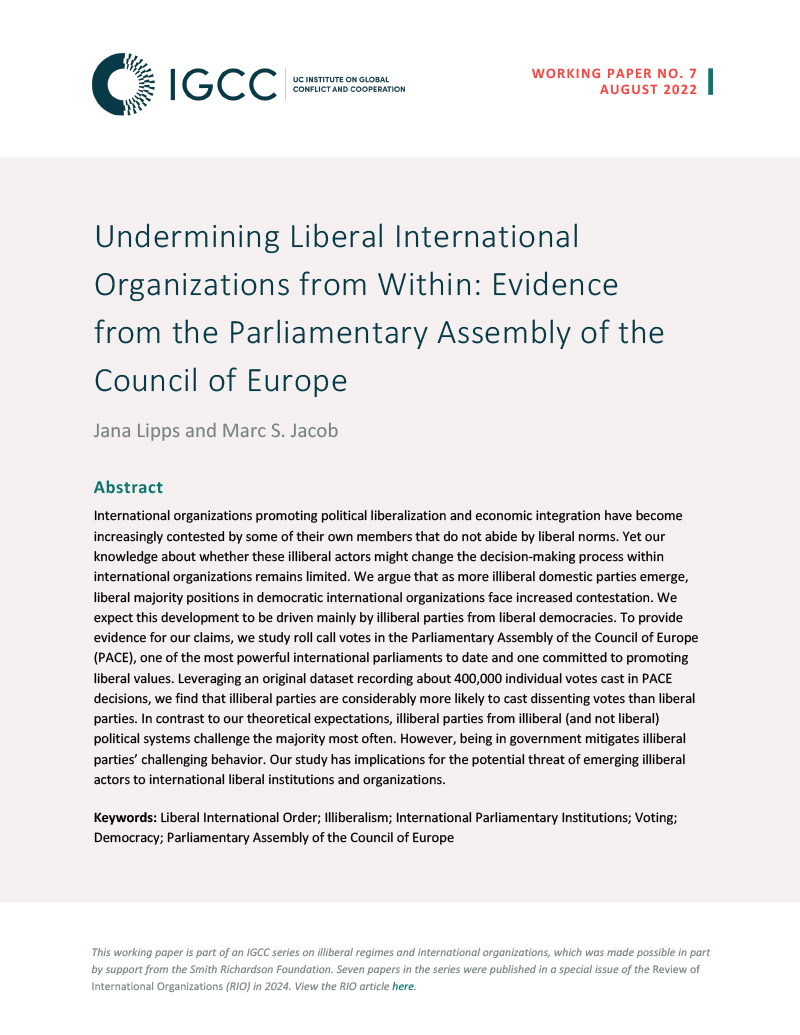Undermining Liberal International Organizations from Within

In this working paper, Jana Lipps, a postdoctoral researcher at ETH Zurich, and Marc S. Jacob, a Ph.D. candidate at ETH Zurich, analyze how illiberal domestic parties affect democratic international organizations.
DownloadInternational organizations promoting political liberalization and economic integration have become increasingly contested by some of their own members that do not abide by liberal norms. Yet our knowledge about whether these illiberal actors might change the decision-making process within international organizations remains limited. Jana Lipps and Marc S. Jacob argue that as more illiberal domestic parties emerge, liberal majority positions in democratic international organizations face increased contestation. They expect this development to be driven mainly by illiberal parties from liberal democracies. To provide evidence for their claims, they study roll call votes in the Parliamentary Assembly of the Council of Europe (PACE), one of the most powerful international parliaments to date and one committed to promoting liberal values. Leveraging an original dataset recording about 400,000 individual votes cast in PACE decisions, they find that illiberal parties are considerably more likely to cast dissenting votes than liberal parties. In contrast to their theoretical expectations, illiberal parties from illiberal (and not liberal) political systems challenge the majority most often. However, being in government mitigates illiberal parties’ challenging behavior. Their study has implications for the potential threat of emerging illiberal actors to international liberal institutions and organizations.
This working paper is part of an IGCC series on illiberal regimes and international organizations, which was made possible in part by support from the Smith Richardson Foundation. Seven papers in the series were published in a special issue of the Review of International Organizations (RIO) in 2024. View the RIO article here.